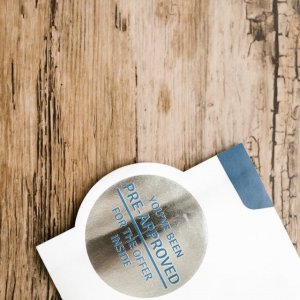Bailiffs or Sheriffs - Another method of enforcing a County Court Judgment (CCJ)
Who is best at recovering money? - A Court Bailiff or a Sheriff? - A Sheriff is better at collecting in debts - Why?
What are the differences between a County Court Bailiff and a Sheriff acting as a bailiff? The difference is best explained by a case study.
Case Study – Enforcement of a County Court Judgment (CCJ) by recovery / seizure action by a Bailiff.
You are the director of and owner of a limited company called Myco Ltd. A CCJ has been granted against Myco Ltd for £35,000 by your supplier - a company called Supplier Limited.
The first thing to always check is whether the Judgment in favour of Supplier Ltd was granted by the County Court or by the High Court. If the judgment was granted by the County Court then as you would expect it is called a County Court Judgment or CCJ.
This case study deals with bailiff action under a CCJ as a Sheriff cannot be used to seize goods under a CCJ (unless the Court case is transferred to the High Court).
- Following the grant of a CCJ the Court does nothing further to enforce the Judgment unless a further Form of Application is sent to the Court by Supplier Ltd.
- If Supplier Ltd wants the Court to instruct / direct a Court bailiff to seize goods of Myco Ltd then a Form N323 must be sent to the Court together with a further Court Fee. (Supplier Ltd had to pay a court Fee to obtain the CCJ in the first instance).
- It is critical to understand that the Court Bailiff is a salaried Court employee. It does not make one iota of difference to that Bailiff as an individual as far as his income is concerned as to whether he recovers any money or assets when he attends at your business premises – Myco’s premises. Cynics sometimes say that Court appointed bailiffs might be ineffective for that reason and that they may occasionally be sympathetic with Myco Ltd – the company that owes the money.
- Having said that if a Court Bailiff appears at your premises (the premises of Myco Limited) he has the power to seize (take) Myco’s assets or leave Myco with a Walking Possession Agreement. A walking possession agreement means that the goods or other assets seized now legally belong to the bailiff and cannot be removed by Myco or sold by Myco.
Case Study – Enforcement recovery action by a Sheriff
- In this case study the only difference to the above scenario is that the Court Judgment was obtained in the High Court as opposed to the County Court.
- The High Court bailiff is called a Sheriff. The Sheriff is remunerated or paid as a percentage of the money collected or as a percentage of realisations from assets that he seizes. A Sheriff is therefore single minded at getting results – In many instances he is a more effective weapon as far as Supplier Ltd is concerned as regards getting money out of Myco Ltd through bailiff type seizure action.
- If a judgment is first obtained in the County Court and is for £600 or more then Supplier Ltd can apply to have the Judgment transferred (on payment of a further Court Fee) to the High Court. Supplier Ltd can then instruct, via the Court, a Sheriff rather than a bailiff.
Enforcing County Court Judgments – Use a bailiff or a sheriff? – I know which I would want to use! For information about the options open to you to protect against bailiff or sheriff action please click here.
Would you like us to give you a call?
Fill in the form and we'll give you a call as soon as we can to discuss your needs in a free initial consultation with a Licensed Insolvency Practitioner. Alternatively give us a call on 01326 340579 if there is an urgency to your needs.
The information provided will be used solely to contact you and any information you provide will be held in accordance with our firm's privacy policy, and not used for marketing purposes.






